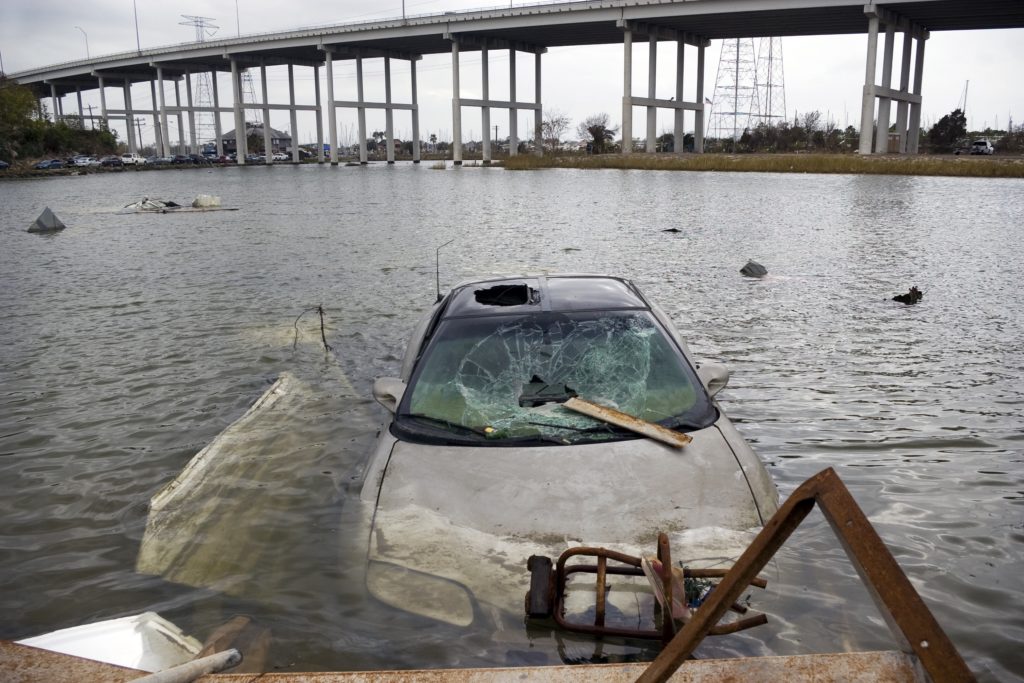While natural disasters do not discriminate, their long-term impact disproportionately falls on low-income communities of color.
October 12, 2017

More than a decade ago, the federal government’s grossly indifferent response to the plight of low-income African-Americans during Hurricane Katrina laid bare how poverty, economic inequality, and racial injustice impact the delivery of disaster relief. At the time, the federal government promised to do better.
Twelve years after Katrina, the nation is facing one of the most destructive hurricane seasons in years, which has already left residents of Florida, Houston, Puerto Rico, and the U.S. Virgin Islands battered. The situation is most dire in the U.S. territory of Puerto Rico, which was hit by two powerful storms. Even though the federal government is still not meeting the most basic and fundamental needs of Puerto Rican-Americans, President Trump is now threatening to ramp down FEMA assistance. Struggling for weeks without safe water, electricity, food, and medical care, Puerto Rico’s leaders have literally begged for the lives of their people. In response, President Trump accused Puerto Ricans of not helping themselves, a potent reminder that recovery efforts continue to remain starkly different in communities of color and often plagued with stereotypes and bias. These differences have long-term and often lethal consequences, and ultimately undermine us as a country.
These families often lack the resources to manage even minor financial emergencies. Many struggle every day simply to secure housing, food, and healthcare and to maintain employment. In many cases, avoiding the disaster by evacuating is not financially possible.
Impoverished communities are also typically racially and economically segregated, and already under-resourced and vulnerable to flooding, sometimes due to years of failing to protect these communities as part of flood planning. These areas are often adjacent to environmentally toxic sites, whose dangerous boundaries only expand after the storm.
Disasters ultimately topple struggling families from their precarious state, often leaving them stuck in mold-infested, uninhabitable housing and pushing them in a deeper financial hole than ever before.
Undocumented households, including the hundreds of thousands of undocumented immigrants impacted by Hurricane Harvey in Texas alone, are ineligible for FEMA assistance. And thanks to looming immigration crackdowns and xenophobic rhetoric from the Trump Administration, they are also likely afraid to seek other forms of help.
Programs like the Supplemental Nutrition Assistance Program (SNAP) and Medicaid serve as important sources of relief for families hit by disasters. In places like Florida and Houston, these programs will be most effective precisely because they are open-ended and expand in times of such dire need. But in Puerto Rico, SNAP and Medicaid are delivered as federally-capped block grants, meaning they are fundamentally incapable of adequately responding when disasters strike. Lawmakers have proposed similarly capping and cutting SNAP and Medicaid across the nation — threatening to strip millions of low-income people of assistance and to hamstring future recovery efforts.
Yet adequate federal funding to meet communities’ needs for safety net benefits, legal services, clean air and water, affordable housing, and disaster relief must be sustained all of the time, not just when disasters hit. Disasters make clear that a limited government does little to protect the poor and vulnerable, even in the best of times. As this year’s hurricane season teaches, our failure yet again to confront the intersection of race and poverty only perpetuates a legacy of injustice. Only by ensuring that the basic needs of all are met can we truly recover.
America’s greatest strength is its diversity.
Systemic inequities and the legacy of structural racism make it harder for low-income people and people of color to achieve financial stability.